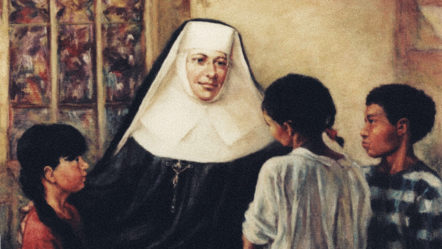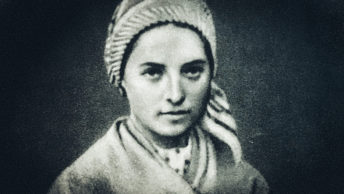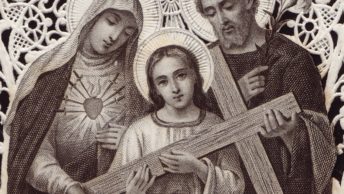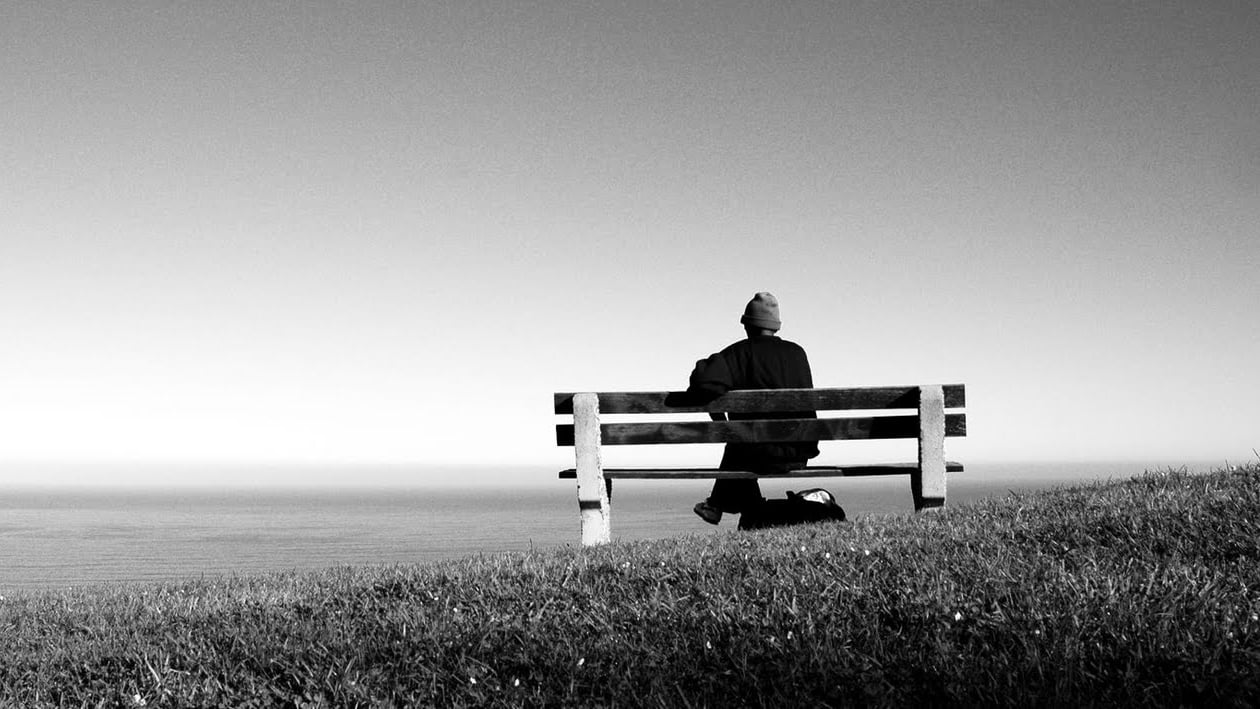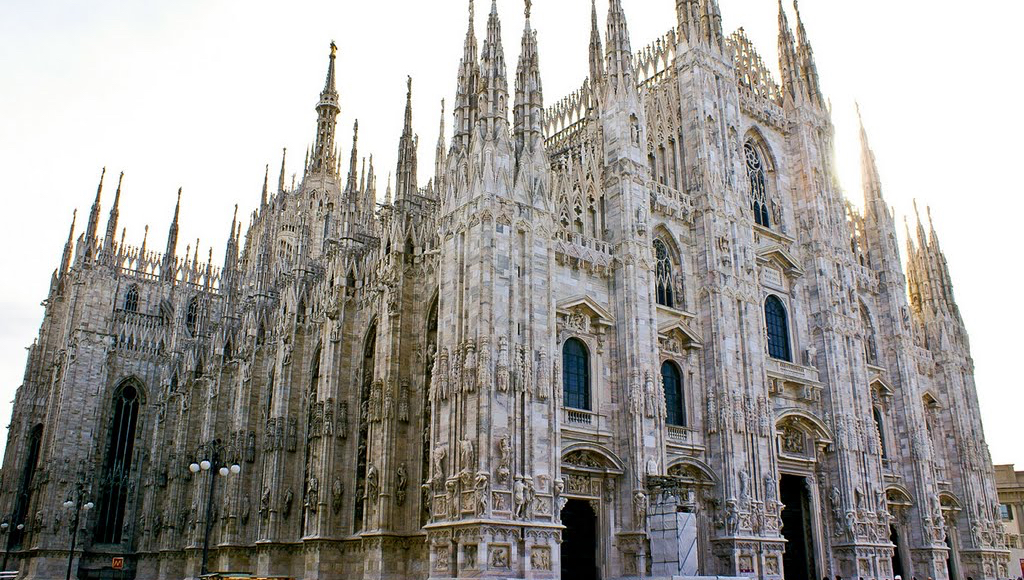In the final scene of Frank Capra’s 1946 movie, It’s a Wonderful Life, George Bailey is toasted as “the richest man in town.” Why? Now, if you have seen this classic movie, you will remember that after his father died, the burdens of reality fell upon him. He was called upon to continue the family business, care for his mother, and ensure that those around him had what they needed to succeed. By serving his family, friends, and community, George used the gifts that God had given him for the benefit of others. And while never attaining personal fame and fortune, he did come to possess something more important, the admiration and devotion of those around him.
Sacred Scripture invites us to discern that which makes us “rich.” In the Book of Ecclesiastes (1:2, 2:21-23), we are shown how eternal wisdom may be ours! However, we are warned that if we spend every waking hour bent on enriching ourselves, we will have pursued vanity, forgotten the Lord, and missed out on the very purpose of our lives. As the Psalmist (90:1-2, 6-9) notes: “Lord, teach us to number our day aright, that we may gain wisdom of heart.” With wisdom as our guide, St. Paul (Colossians 3:1-5) provides us with our mission: “May we put to death those parts of us that are earthly: immorality, impurity, passion, evil desire, and greed.” In the Gospel of Luke (12:13-21), Jesus describes the rich man as a “fool,” a word in the Hebrew scriptures used to characterize those who rebel against God or forget Him entirely. (see Psalm 14:1)
In my own life, I remember three encounters that helped clarify my thinking regarding “riches.” Ironically, all three occurred with religious sisters. As such, I describe them as “sisterly encounters.”
The first occurred in my late twenties while I was contemplating a run for public office. After hearing of my intentions, a sister in my parish approached and told me that if I ran for office, she wouldn’t vote for me. When I asked her why, she replied: “Because I think you have a religious vocation.” Without answering her, I remember thinking: “What? A religious vocation? That’s for sisters, brothers, bishops, priests, and deacons. No, definitely not me.”
The second occurred years later, when I was a graduate student at Sacred Heart Major Seminary. This sister was my professor. One evening, we shared a meal before class, and I mentioned a “Saturday morning routine” my wife and I had. If you can remember, in days not so long ago, massive numbers of advertising inserts would arrive inside the weekend paper. And so, each Saturday, over coffee, we would glance through them and jointly decide that “next thing” to purchase. I remember her looking at me and saying: “Oh, those are the first things I toss into the rubbish.” So much for the “material world.” Gulp.
The third occurred over lunch with another sister I had met. At a certain point, she stopped and asked me if I had a pencil and paper. Looking back, I am convinced the Holy Spirit prompted her to provide me with some important wisdom—for living out my life. After instructing me to write down several scriptural passages (Mt 6:19-21, Mt 13:44, Lk 12:33-34, and 2 Col 4:6-7) and pray over them, she said: “They will provide you with a solid roadmap for your life.”
Upon reaching home, I opened them up:
(1) Do not lay up for yourselves treasures on earth.
(2) The Kingdom of Heaven is like treasure hidden in a field.
(3) For where your treasure is, there will your heart be also.
(4) But we have this treasure in earthen vessels, to show that the transcendent power belongs to God and not to us.
In an instant, these words hit me like a ton of bricks. In my mind came observations and questions: Everything is passing away—except that which is eternal. And what is eternal? Love. And who is Love? God. And how do we love God? By loving our neighbor.
All of this brings me to the story of St. Katharine Drexel (1858-1955). In her late teens, this pious girl from Philadelphia inherited millions (worth $4 million then and $500 million now). One day, after conferring with two priests, she became aware of the need for ministry to native Americans and people of color. In short order, her concerns became so great that she eventually traveled to Rome and received an audience with His Holiness, Pope Leo XIII. In speaking with him, she asked him to send missionaries. But after a time, the Holy Father turned to Katharine and said: “Then you do it.”
As she left her meeting with Pope Leo, Katharine had a lump in her throat and tears began to stream down her face. However, she received his words at face value. Upon returning to Philadelphia, she entered a convent and ultimately received permission to begin a new order of sisters, the Sisters of the Blessed Sacrament. By her death on March 3, 1955, Saint Katharine Drexel had given away her entire earthly treasure. With prayerful insights, she had poured them into God’s holy people and set in force a movement that continues to this day.
Today, we are called to find true wealth and become the “richest” men and women in our town. Through the Scriptures, a fictitious George Bailey, and life of a great saint, we are called to discern what really matters in our lives.
Jesus warns us to guard against greed and to not live as though we reside on a continuous merry-go-round whereby we acquire possessions to be stored up for a rainy day.
For these will not last.
Instead, Our Lord reminds that all-we-have-been-given and all-we-will-ever-have comes from His hand and is meant to be shared with others.
Indeed, each of us has been created by our Loving God and given special gifts held in earthen vessels. If we can imagine these vessels as breakable vases, God commands us to break them in order that we might share their contents with others.

